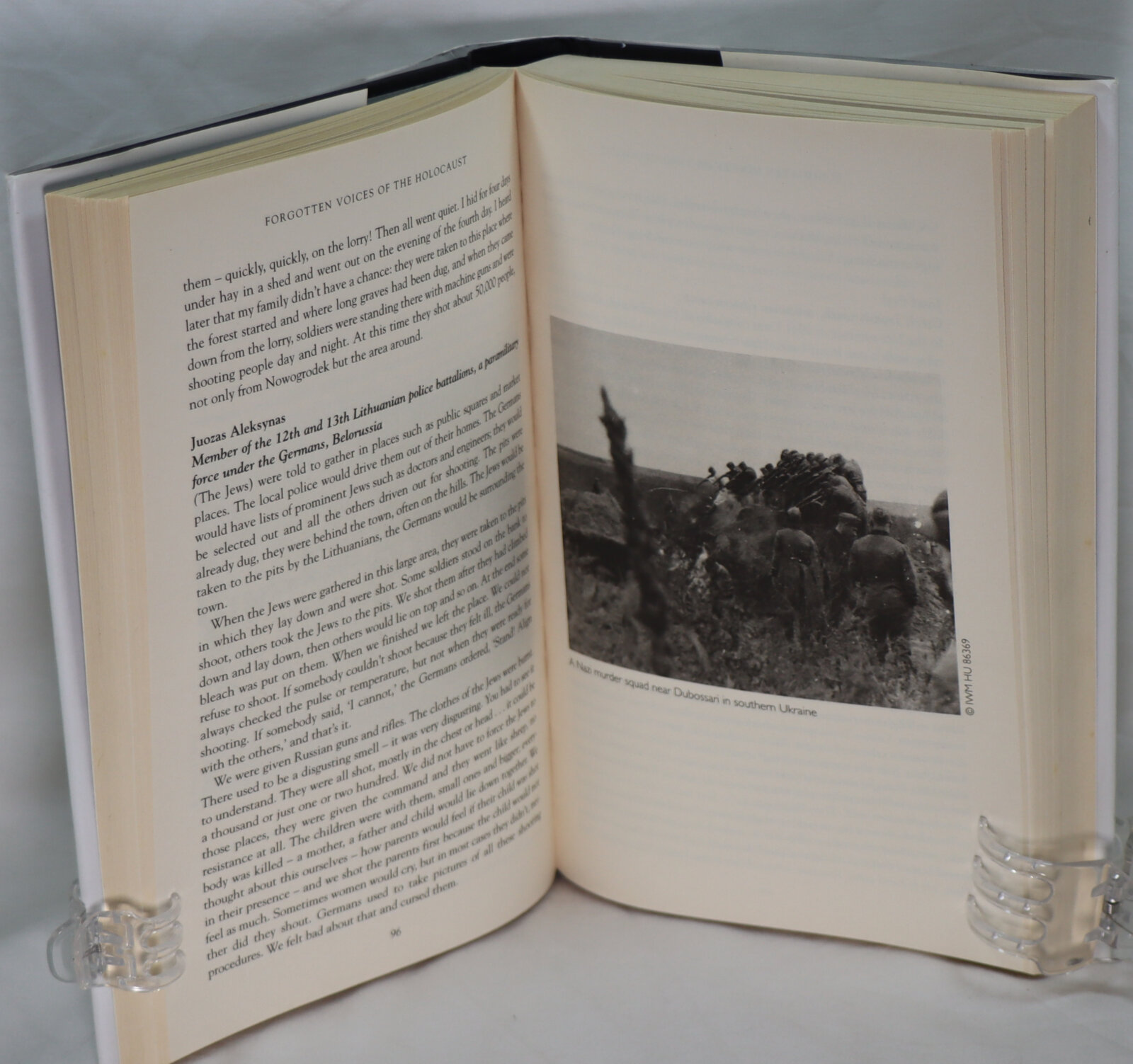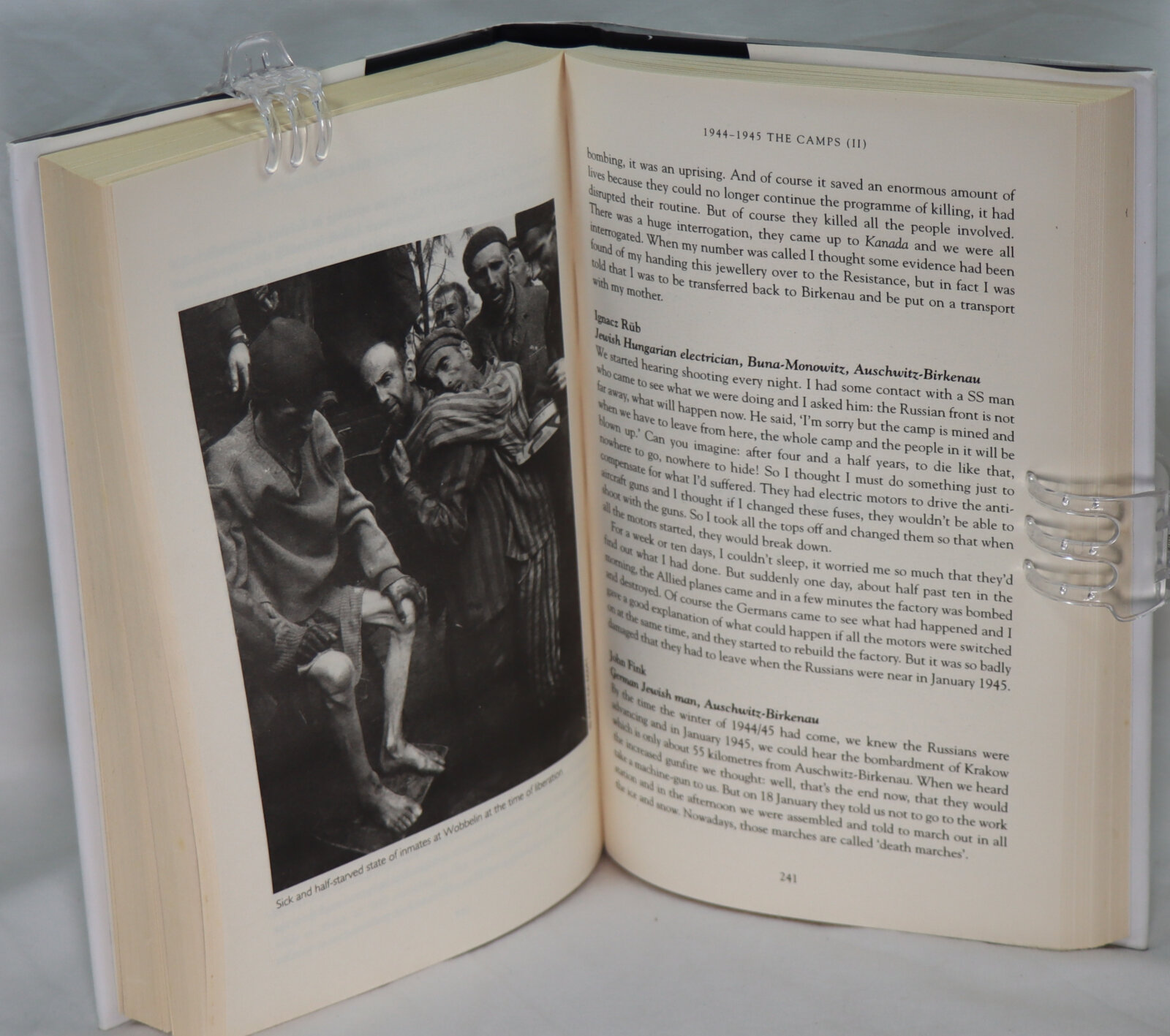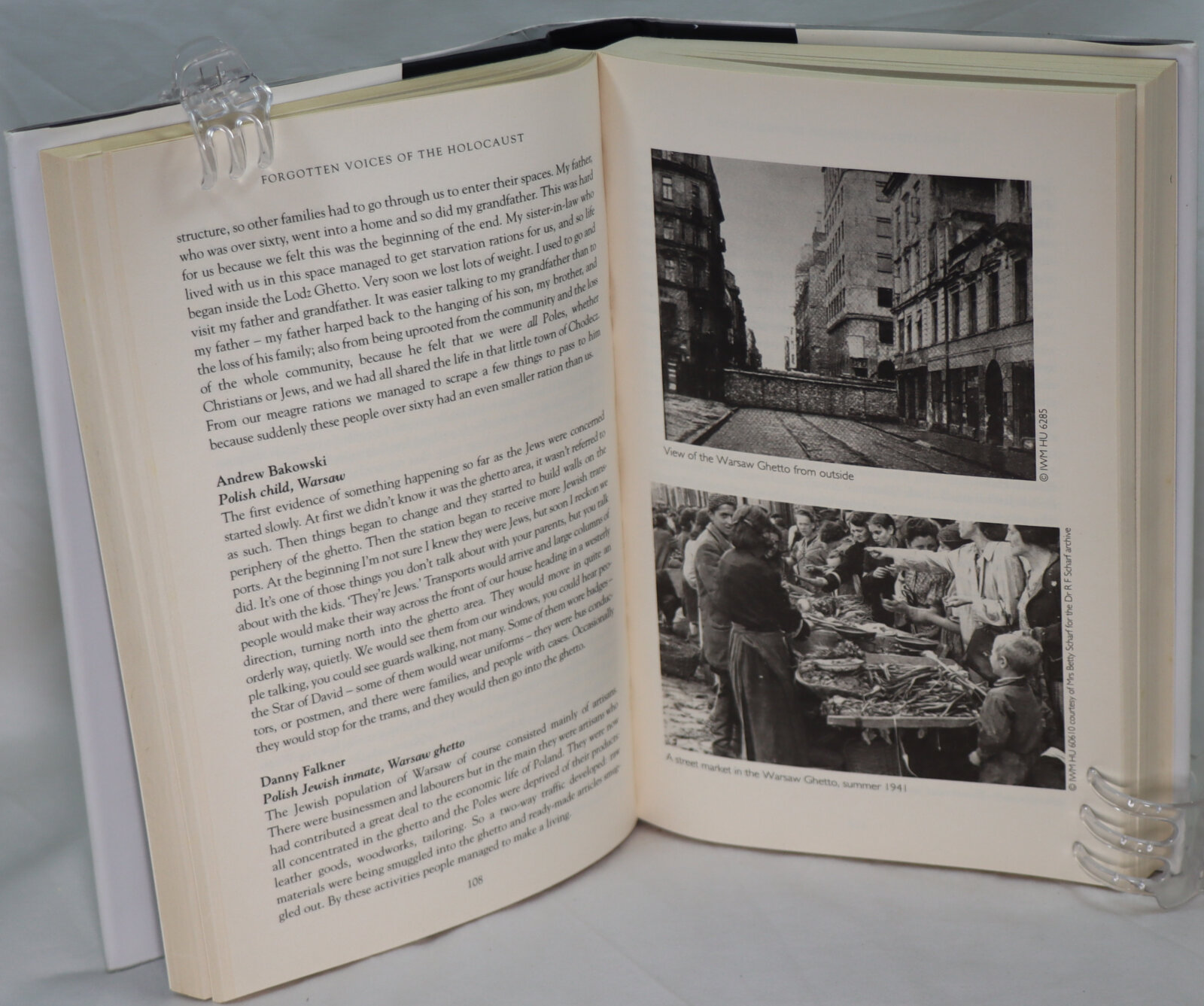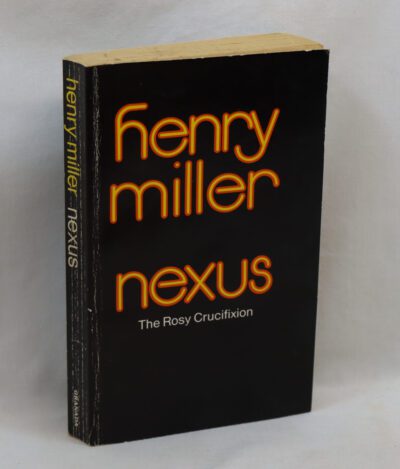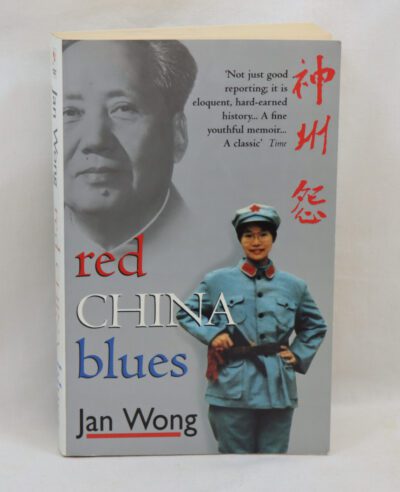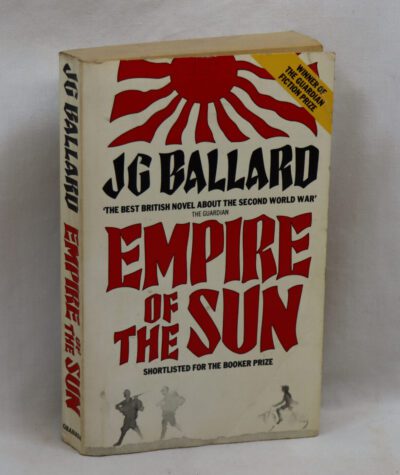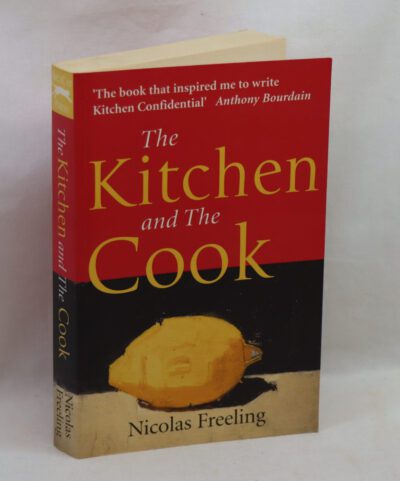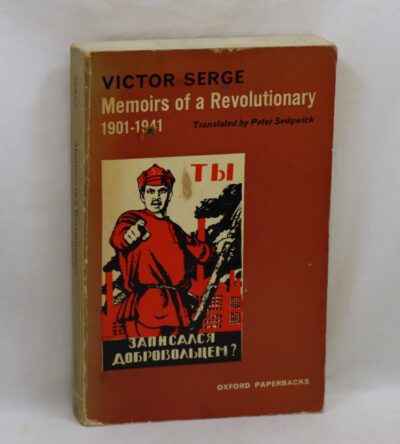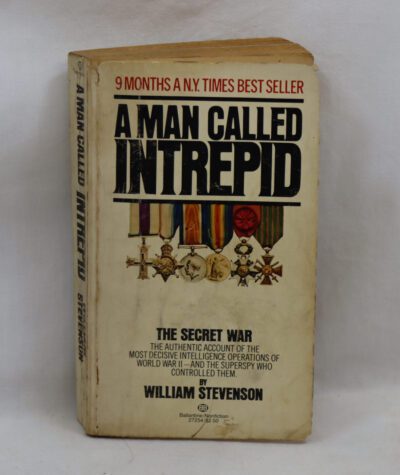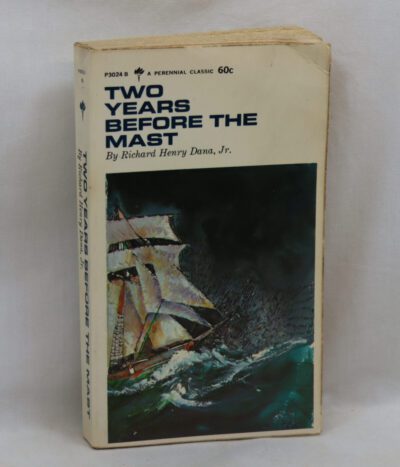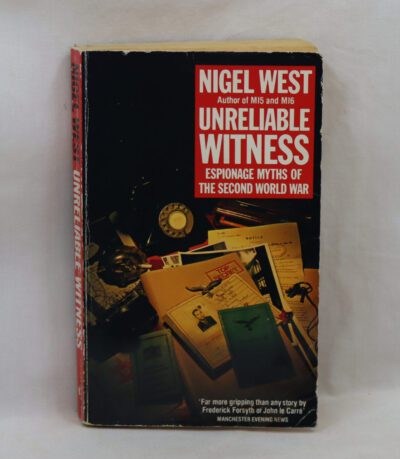Forgotten Voices of the Holocaust.
By Lyn Smith
ISBN: 9780786734061
Printed: 2005
Publisher: Ebury Press. London
| Dimensions | 17 × 24 × 4 cm |
|---|---|
| Language |
Language: English
Size (cminches): 17 x 24 x 4
Condition: Fine (See explanation of ratings)
Item information
Description
In the original dustsheet. Black cloth binding with gilt title on the spine.
-
F.B.A. provides an in-depth photographic presentation of this item to stimulate your feeling and touch. More traditional book descriptions are immediately available.
Following the success of “Forgotten Voices of the Great War”, this series now chronicles one of human history’s darkest hours. The author comes to the project following her significant work in recording the experiences of Holocaust survivors for the Imperial War Museum sound archive – one of the most important archives of its kind in the world. The intertwined moving and revealing interviews reveal the sheer complexity and horror of the Holocaust. The great majority of survivors suffered considerable physical and psychological wounds, yet the overall story is far from being just gloom and doom. There are many poignant vignettes describing acts of charity, reciprocity and kindness in the face of the most extreme form of barbarism. As well as revealing the story of the Holocaust as directly experienced by victims, these testimonies also illustrate how, even enduring the most harsh and degrading conditions and treatment as well as suffering massive family losses, hope, the will to survive and the human spirit shines through.
Reviews:
-
” ‘The stories of these now long-dead vets simply jump off the page’ – FHM ‘This extraordinary book is crammed with details, conjuring up the atmosphere of war as vividly as the frequent descriptions of appalling violence’ – Daily Telegraph
-
‘The words of the soldiers are as fresh as if they were written yesterday…extraordinary’ – Deborah Moggach, Mail on Sunday
-
‘Everyone who loves oral history will enjoy the often harrowing accounts contained in this book’ – History Today ‘a compelling account of a world not to be forgotten’ – Despatches”
-
A landmark oral history – the latest in the bestselling and award-winning Forgotten Voices series
-
For the last twenty-five years Lyn Smith has been recording the experiences of Holocaust survivors for the Imperial War Museum Sound Archive. Now, in Forgotten Voice of the Holocaust she has used these and other interviews to piece together this powerful oral history of how the Nazi regime murdered over six million European Jews, as well as Communists, Poles, Jehovah’s Witnesses, homosexuals, people with disabilities, Soviet Prisoners of War and much of the Sinti Roma (Gypsy) population.
-
Through the voices of over 100 contributors, the story is told of how pre-war life changed to one of persecution; of the rise in emigration, and of the creation of the ghettos. We learn first hand of how people started to realise that relatives and friends being sent ‘East’ were being sent to some kind of ‘camp’. And of course, we also witness the unbelievable atrocities that were taking place.
-
From those who managed to avoid the horror of concentration and death camps like Belsen and Auschwitz there are evocative tales of being in hiding and active resistance to the Nazi regime. And whilst the horrific death marches and eventual liberation of the camps mark the end of the Nazi’s attempted Final Solution, we see how the Holocaust doesn’t conclude there. In the wake of the genocide millions struggled to rebuild their lives only to find the process of returning to ‘normality’ made all the more difficult by devastating family losses and complex feelings of guilt. For many of the contributors their interviews stand as the only time they have ever told their story to another living soul.
-
What is perhaps most surprising is that ultimately, their testimonies illustrate how even during the most harsh and degrading conditions, hope, the will to survive and the human spirit shines through.
-
‘My parents were in despair because they heard that children were being taken. They tried for a while to hide me by pushing me into one of those handcarts and piling luggage on top of me. When they started searching the handcarts my father took me out. My mother took me with her into the rank where she was kneeling and wrapped me up in the coat she had been carrying and laid me in front of her as though I was a parcel. The Germans would walk up to a rank and inspect it. And everyone they thought was too feeble to be worth keeping would be yanked out, usually being struck first across the face with these heavy batons that they carried. But it didn’t happen to my mother. I don’t know why. Finally they ordered everyone to stand up and said we were going back to the ghetto. Of course I could not be a parcel now I was standing up. My mother put a coat over my head and other people had coats and piled them on top of that, and they pushed me on. I was a kind of walking parcel. They closed ranks behind me on the march back to the ghetto. We went back to our bare flat. And I remember my father sat on the stripped bed and wept. This is the only time I ever saw him cry and to cry… well to cry like that with ghastly, dry sobbing. I’ll never forget that.’
The Author, Lyn Smith BA (Hons) MA is a lecturer in International Politics at the Open University, and lectures in Politics, International Relations and Human Rights at the Webster University (USA) in London. Over the past twenty years she has worked continuously as a freelance interviewer for the IWM Holocaust Sound Archive, particularly after being specially commissioned for the new IWM Holocaust Exhibition when it was in the late 1990s.
Want to know more about this item?
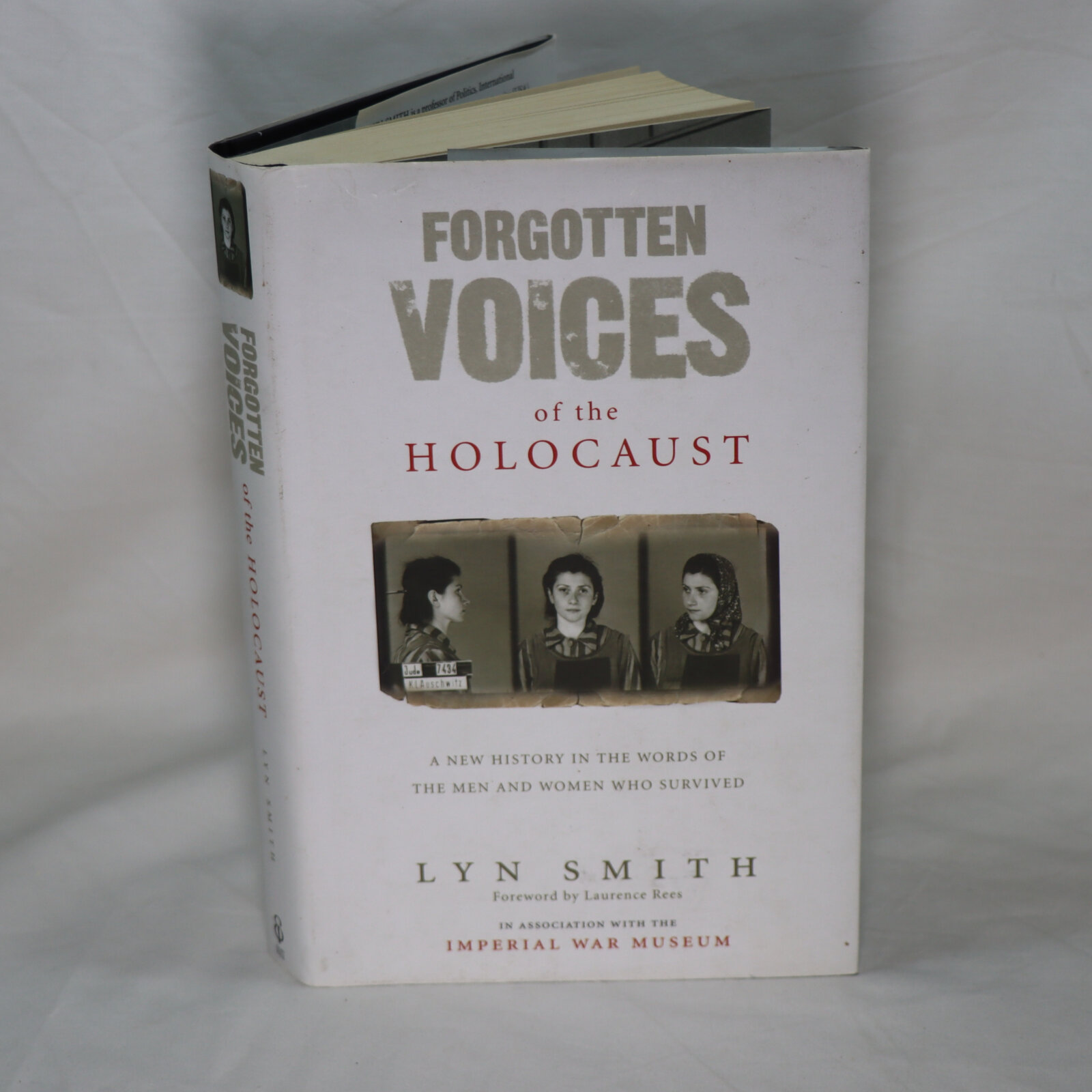
Share this Page with a friend

